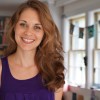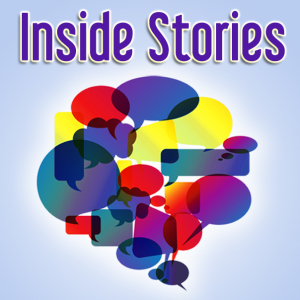 Annie Robinson (52 Posts)
Annie Robinson (52 Posts)Curator of Inside Stories and in-Training Staff Member
Columbia University
Annie Robinson completed a Master of Science in Narrative Medicine at Columbia University in 2014. She previously studied the healing power of stories as an undergraduate at NYU’s Gallatin School of Individualized Study.
Annie works as Narrative Coaching Specialist with Eating Disorder Recovery Specialists, helping individuals in the early stages of eating disorder recovery through mindfulness, meditation, yoga, and narrative practices. She is also the Program Officer at Health Story Collaborative, a non-profit that creates forums for individuals to tell their stories of personal health challenges, and curates another oral narratives projects called On the Road to Recovered: Voices from the Eating Disorder Recovery Community.
Annie is a coordinator and full-spectrum doula for The Doula Project in New York City, providing compassionate care for women during experiences of abortion, miscarriage, and fetal loss.
As a yoga teacher, writer, educator, and co-founder of NYC-based wellness community Pause, Breathe, and Connect, Annie shares her passion for integrative approaches to wellbeing. She is dedicated to creating spaces for people to explore the healing potential of interweaving of stories, spirituality, and somatic experience.
Inside Stories
Inside Stories is an oral narratives project which invites medical students to share their experiences in medical school in the form of brief podcasts published and archived on in-Training. The project aims to provide a means of personal healing, self-realization and empowerment through the sharing and receiving of personal stories, as well as to cultivate community among students in the often isolating medical school environment. The title Inside Stories reflects the project's mission to encourage students to go inside themselves and bring forth things that often go unspoken. It also represents the inside look listeners are granted into the sometimes private, challenging and confusing experiences students may have.
Made possible in part by a grant from the Arnold P. Gold Foundation and FJC.


How can doctors-in-training learn to confront mortality with humility and self-compassion? Rehema, a first-year resident training in pediatrics in Washington D.C., reflects on the challenging experience of losing a patient as a medical student. She also shares her motivation for pursuing pediatrics: the significant opportunity to influence and prolong children’s lives.
How can doctors-in-training address human rights issues through medical care? Hieu, a first-year medical student at Rush, interested in public health and preventive medicine, shares how his experiences as a community health worker in Uganda propelled his motivation to combat structural violence as a physician. He also reflects on the significant distinctions between treatment and care.
How can doctors-in-training honor their cultural heritage in their practice of medicine? Angie, a second-year medical student in Texas, describes how her Syrian heritage and deep concern about health care in Syria today drives her motivation to become a physician.
How can doctors-in-training discern when it is appropriate to detach in the face of suffering, and when a humanistic approach is needed? Robin, a fourth-year medical student completing a fellowship on the biopsychosocial impacts on health at the National Institutes of Health, describes her strategies for connecting with suffering patients.
How can doctors-in-training bring mindfulness into medical practice? Morgan, who is currently exploring healing around the world while applying for family medicine residencies, shares how her experiences at a Zen meditation center inspired her desire to be more present with her patients.
How can doctors-in-training face the fears and failures they may experience in medical school? Nicole, a medical student taking time off after a difficult first year, candidly describes how the roadblocks she confronted were “blessings in disguise.”
How can doctors-in-training explore the relationship between being a medical practitioner and a healer? John Andrew, a fourth-year medical student from New York City, reflects on how witnessing his family’s loving care for his ailing grandmother illuminated what healing really entails. And at the end of the podcast, he summons listeners to a challenge!
How can the ways doctors-in-training evolve as individuals during medical school impact their patients? Samar, a fourth-year medical student and health coach with a passion for patient education and preventive medicine, realized that her personal self-care practices—healthy eating, yoga, exercise and gratitude—not only help her get through school but also contribute to what she can offer her patients on their healing journeys.
How can doctors-in-training manage unanticipated challenges that arise during third year? Cori, a third-year medical student in New York, discusses the effects of constantly rotating through communities during third year. She shares how personal relationships, and the support of a fellow medical student, help ground her.
How can doctors-in-training utilize creative expression to cope with and explore the challenging process of becoming a doctor? Leah, a second-year medical student, shares two poems she wrote. In the first she addresses the struggles faced during her first year, and in the second she reflects on the experience of personal healing.
How can doctors-in-training create authentic community with their fellow classmates? Joe, a second-year medical student in Ohio, discusses the challenges of first year, and speaks about discovering the power of feeling seen by and connected to others.
How can doctors-in-training find inspiration for their future careers while facing the challenges of medical school? Katie, a third-year medical student in Washington, D.C. with an interest in women’s health, describes the hope and encouragement she gained from connecting with the right mentor.
 Annie Robinson (52 Posts)
Annie Robinson (52 Posts)Curator of Inside Stories and in-Training Staff Member
Columbia University
Annie Robinson completed a Master of Science in Narrative Medicine at Columbia University in 2014. She previously studied the healing power of stories as an undergraduate at NYU’s Gallatin School of Individualized Study.
Annie works as Narrative Coaching Specialist with Eating Disorder Recovery Specialists, helping individuals in the early stages of eating disorder recovery through mindfulness, meditation, yoga, and narrative practices. She is also the Program Officer at Health Story Collaborative, a non-profit that creates forums for individuals to tell their stories of personal health challenges, and curates another oral narratives projects called On the Road to Recovered: Voices from the Eating Disorder Recovery Community.
Annie is a coordinator and full-spectrum doula for The Doula Project in New York City, providing compassionate care for women during experiences of abortion, miscarriage, and fetal loss.
As a yoga teacher, writer, educator, and co-founder of NYC-based wellness community Pause, Breathe, and Connect, Annie shares her passion for integrative approaches to wellbeing. She is dedicated to creating spaces for people to explore the healing potential of interweaving of stories, spirituality, and somatic experience.
Inside Stories
Inside Stories is an oral narratives project which invites medical students to share their experiences in medical school in the form of brief podcasts published and archived on in-Training. The project aims to provide a means of personal healing, self-realization and empowerment through the sharing and receiving of personal stories, as well as to cultivate community among students in the often isolating medical school environment. The title Inside Stories reflects the project's mission to encourage students to go inside themselves and bring forth things that often go unspoken. It also represents the inside look listeners are granted into the sometimes private, challenging and confusing experiences students may have.
Made possible in part by a grant from the Arnold P. Gold Foundation and FJC.





